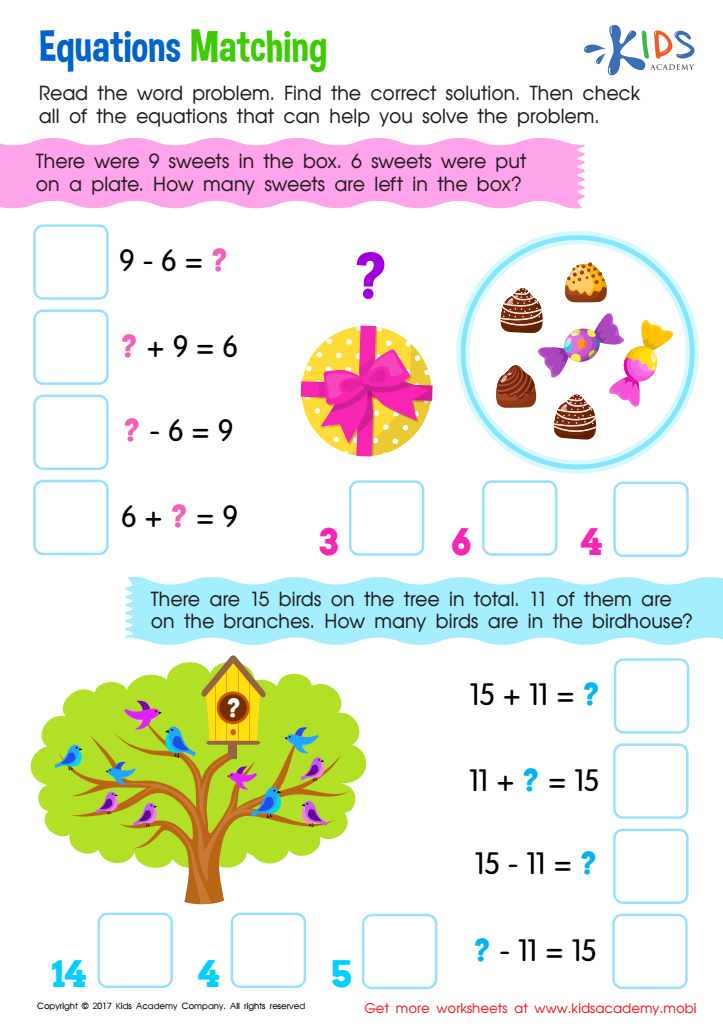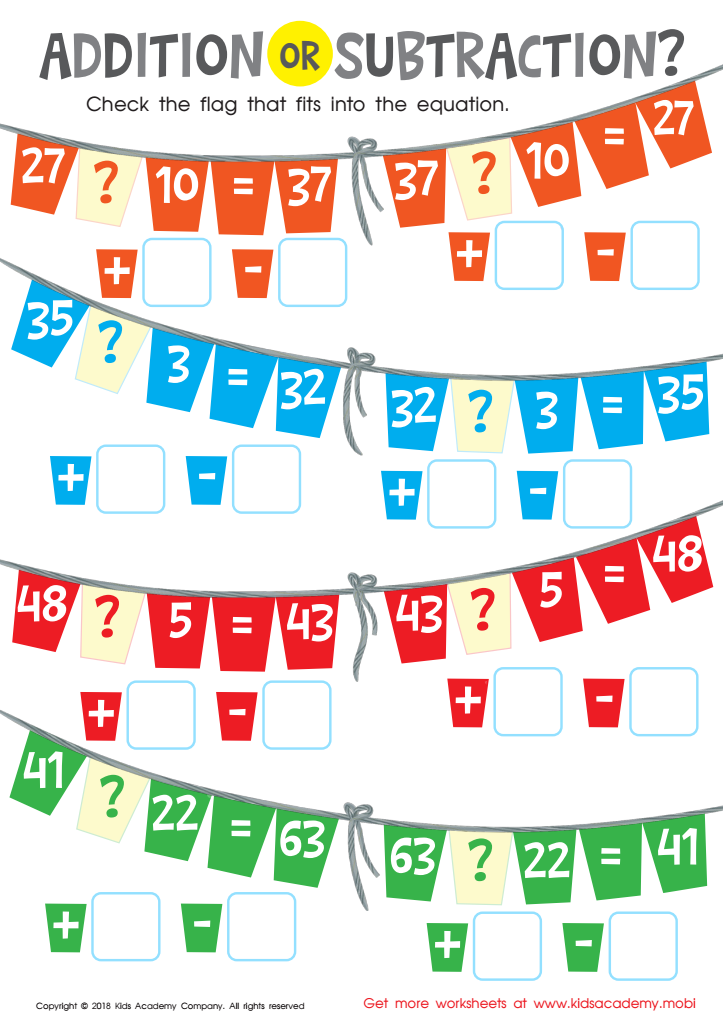Mathematical reasoning Addition Worksheets for 6-Year-Olds
4 filtered results
-
From - To
Discover our engaging Mathematical Reasoning Addition Worksheets designed specifically for 6-year-olds! These worksheets aim to enhance young learners' understanding of addition through fun and interactive exercises. Our resources are crafted to boost critical thinking and problem-solving skills, ensuring children develop a solid math foundation. With a variety of activities—including visual aids, real-life scenarios, and challenging puzzles—students will improve their addition skills while cultivating a love for learning. Perfect for home or classroom use, our worksheets align with educational standards and promote analytical skills. Start your child's journey to math mastery with our captivating addition worksheets today!


Tricky Problems Worksheet: Part 1


7 Continents and 7 Seas Worksheet


Equations Matching Word Problems Worksheet


Addition or Subtraction? Worksheet
Mathematical reasoning in addition is a foundational skill that shapes a child's understanding of mathematics and problem-solving for years to come. For 6-year-olds, developing mathematical reasoning means fostering their ability to think logically and make connections between numbers. This understanding goes beyond rote memorization; it encourages children to engage with concepts actively, making them more adept at tackling a variety of math-related challenges throughout their academic journey.
Parents and teachers should care about fostering this reasoning because it builds confidence in young learners. When children grasp the 'why' behind addition, they feel empowered to explore and tackle new problems, rather than simply relying on learned procedures. This foundational reasoning skills contribute to higher-order thinking, allowing children to approach more complex mathematics as they advance in school.
Moreover, solid mathematical reasoning has been shown to correlate with performance in other academic subjects. By prioritizing mathematical reasoning in addition, parents and teachers lay the groundwork for lifelong learning and critical thinking. Investing early in these skills not only enhances a child’s ability to succeed in math but also instills a positive attitude toward challenges and learning in general, fostering resilience and inquisitiveness.
 Assign to My Students
Assign to My Students





















